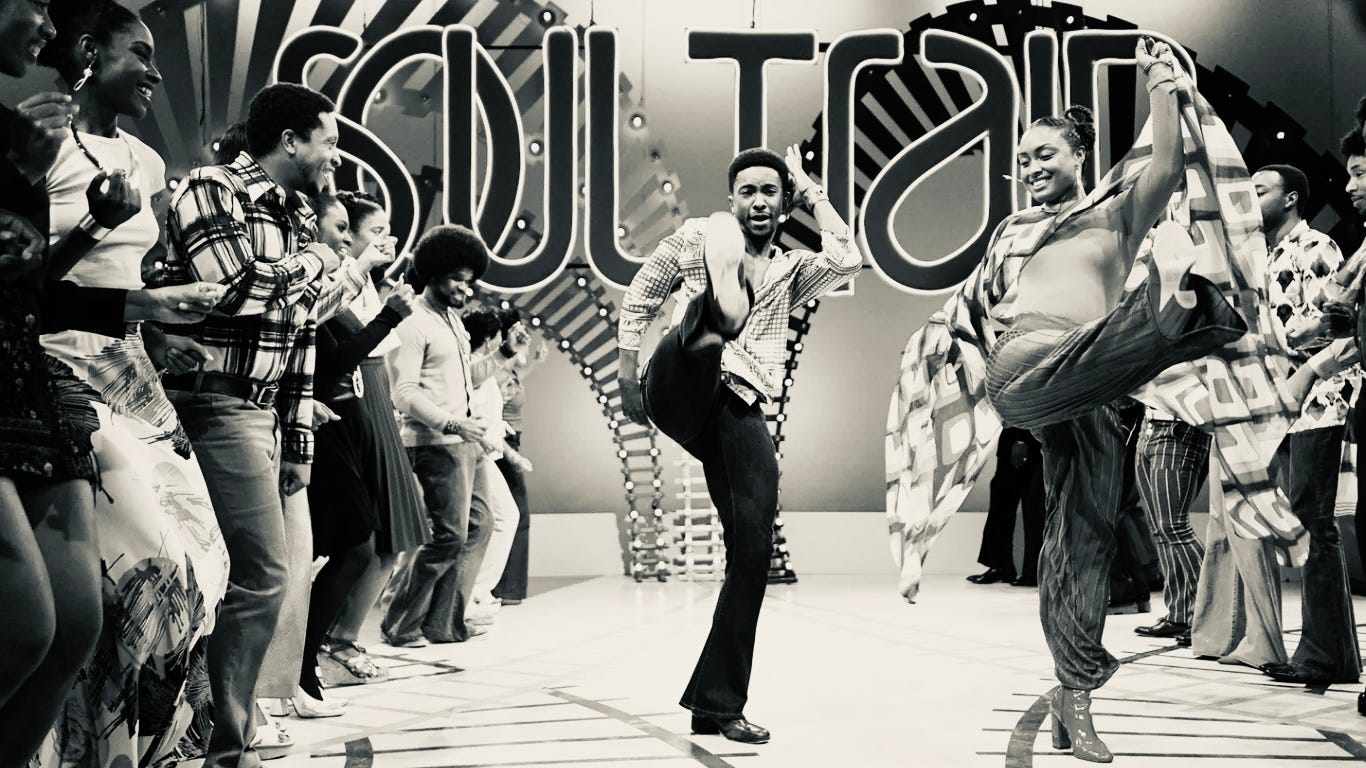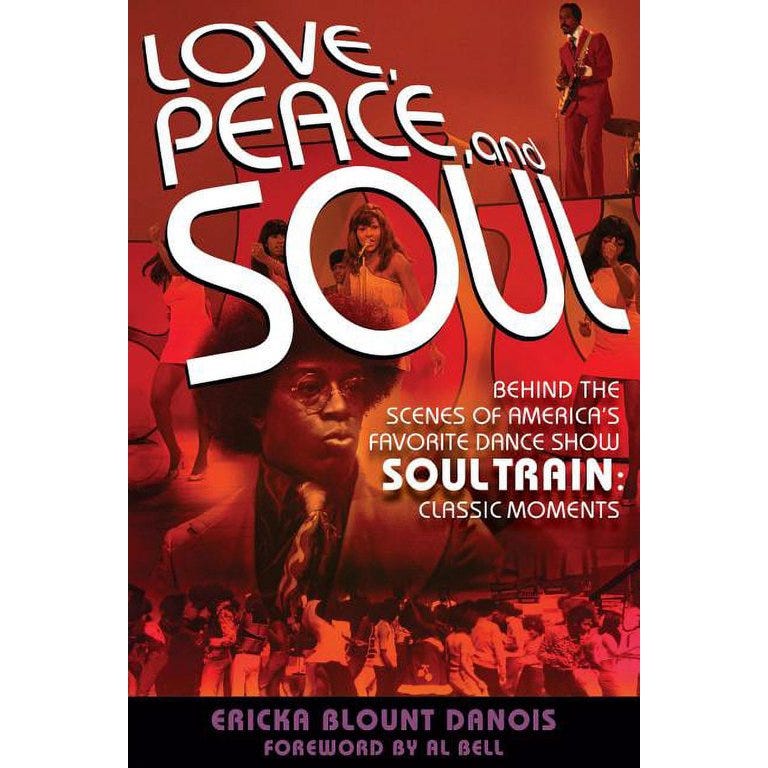“A huge part of Black America died when Soul Train went off the air.”
Diamond-Michael Scott
Do you remember Soul Train? That unapologetically badass show that brought Black culture to living rooms across America for 35 unforgettable years?
From 1971 to 2006, Soul Train was the pulse of Black music and dance, and it still holds the title as one of the longest-running syndicated shows in U.S. history.
The mastermind behind it all? Don Cornelius, a smooth-talking DJ from Chicago with a voice that could stop time. Every episode kicked off with the iconic “Soooulll Traaain,” a call to get up, move, and celebrate Black excellence.
If you grew up during the show’s heyday, you know what it felt like to jump up and dance as soon as the theme music hit.
I remember it well—growing up in Columbus, Ohio, those Sundays watching Soul Train were pure magic. Cornelius would step onto the screen, sharp and sophisticated, and set the stage for a cultural revolution that combined music, dance, and Black pride.
The energy was electric, as the camera flipped between legendary performers and dancers who seemed to move like they were born from the rhythm itself.
What made it so powerful was how Soul Train gave Black Americans permission to be fully, authentically themselves. The show was an unfiltered showcase of Black style, creativity, and music at a time when the world wasn’t always ready to accept it.
Cornelius called it “the hippest trip in America,” and he wasn’t wrong. It was where you learned the latest moves, where you saw the cutting-edge fashion, and where you could feel proud of who you were and where you came from.
The show didn’t just make you feel good—it empowered you. And it wasn’t just a Sunday ritual, it was a revolution in slow motion.
A Cultural Powerhouse
Over time, Soul Train became the premier platform for Black musicians, both emerging and established. The list of stars who graced that stage is endless: Aretha Franklin, James Brown, Michael Jackson and the Jackson 5, Barry White, Anita Baker, and even KC and the Sunshine Band. Each performance was a testament to the raw, unmatched talent of Black artists.
But it wasn’t just about the music. Soul Train was about identity. It was about showing the world the beauty, creativity, and resilience of Black culture, something the mainstream wasn’t used to celebrating.
The dancers—everyday people who were suddenly catapulted into the spotlight—became icons in their own right, some even going on to perform for legends like Michael Jackson. Soul Train turned street moves into cultural landmarks, immortalizing them for all time.
Cornelius’ Vision and Legacy
Don Cornelius was the heartbeat of the show, hosting it until 1993, when he became “host emeritus.” He was always dressed to the nines, carrying himself with dignity and class—he was a visual reminder of the sophistication within Black culture.
Cornelius didn’t just host; he owned the show, making it a Black-owned powerhouse backed by Black sponsorship, something almost unheard of in the industry at the time. That’s Black Power in action.
Ericka Blount Danois, author of Love, Peace, and Soul: Behind the Scenes of America’s Favorite Dance Show, said it best in an interview I had with her:
“Soul Train provided a platform for authentic and unfiltered Black life—a platform that didn’t exist before. White folks who hadn’t seen the full breath of Black talent got to witness it on their screens. It was Black Power, Black talent, Black ownership, all rolled into one.”
The reach of Soul Train extended far beyond its run. Every dance show since owes its existence to it. Every Black-owned network that followed, from BET to TV One, stands on its shoulders. Soul Train was more than a show—it was a movement. And no one has come close to recreating that magic.
A Lasting Legacy
In 2012, Don Cornelius tragically took his own life after battling health issues. But his legacy? Untouchable. Soul Train lives on as a beacon of Black culture, a reminder of what happens when we own our narratives and celebrate our uniqueness. As Ericka Blount Danois put it, “It can’t be duplicated.”
The show captured the essence of Black talent, soul, and spirit in a way that will never be forgotten. It wasn’t just TV. It was a revolution set to a groove, and it left an indelible mark on American history.
We Invite You to Join “Black Books + Black Minds.”
As a supporting member of "Black Books, Black Minds," you'll provide much needed resources for me to continue to dive deeper into a world where your reading passions around Black History thrive.
For just $6 a month or $60 a year, you unlock exclusive access to a close-knit community eager to explore groundbreaking authors and books.
So join us today. Your participation and support are welcomed and appreciated.







Thanks for taking us back. Soul Train was and still is the move.
Hi Diamond-Michael. Dr. Akilah Cadet has a new book that you should check out. It's called White Supremacy is All Around: Notes from a Black Disabled Woman in a White World. She headed the Disabled Voters for Harris call was on from a few months ago.